|
HOME: www.hiltonpond.org |
|||
|
(Trip info & pricing updated 29 August 2011) |
|
All text, maps & photos © Hilton Pond Center NICARAGUA RUBY-THROATS, Based upon 14 very successful Neotropical expeditions from 2004 through early 2011, Hilton Pond Center for Piedmont Natural History--in conjunction with Holbrook Travel--is again offering mid-winter field trips to study Ruby-throated Hummingbirds on their non-breeding grounds in Central America. In 2012 we'll return to Costa Rica and Belize to continue our ground-breaking work there; in addition, after a long search we've finally located a lodge in Nicaragua with nice rooms and good food and--of significant importance--a staff willing to maintain sugar water feeders to attract and concentrate ruby-throats prior to our arrival.
All text, maps & photos © Hilton Pond Center Ruby-throated Hummingbirds, Archilochus colubris (immature male, above)--which occur in 38 U.S. states and across southern Canada March through October--are the most widely distributed hummer species. Nonetheless, they are poorly studied in Mexico and Central America where they spend their non-breeding months.
All text, maps & photos © Hilton Pond Center Nicaragua is rich in biodiversity with tropical rain forests, a huge inland lake, and tall volcanic ranges (Mombacho Volcano, above). It has 76 protected regions, including 23 privately owned natural reserves; the total protected area represents an impressive 18% of the country. Private reserves are accessible to visitors and offer an introduction to sustainable development and environmentally friendly projects that help the local economy, including organic shade-grown coffee farming.
All text, maps & photos © Hilton Pond Center Nicaragua 2012 brings a new twist to Operation RubyThroat's Neotropical hummingbird expeditions in that during the nine-day trip we'll make a mid-week overnight visit to Ometepe, a volcanic island on Lake Nicaragua (see map at top of page). Believe it or not, this lake is home to freshwater sharks! Our field site will be within Managua Province--specifically in the municipality of Ticuantepe ("Hill of the Fierce"), which has Nicaragua's most extensive freshwater aquifer and is the country's largest producer of pineapples.
All text, maps & photos © Hilton Pond Center Flights into the Nicaraguan capital of Managua (see map at top of page) arrive in the afternoon, after which we'll head out in an air-conditioned bus through tropical Nicaraguan landscapes--looking for birds and wildlife and arriving soon thereafter at Montibelli Private Forest Reserve (above). This extensive private mixed-use property includes great food and comfortable accommodations. Montibelli is the cloud forest home to a wide variety of tropical plants from epiphytic orchids to towering mist-shrouded trees--and more than 150 bird species.
All text, maps & photos © Hilton Pond Center Our Nicaraguan base station at Montibelli has single- and double-occupancy cabins (above) and private hot-water baths--plus a group dining room (below) with fresh fruit, meats, and vegetables at every meal.
All text, maps & photos © Hilton Pond Center Most days after breakfast at Montibelli we'll simply walk into the nearby forest (below) and spend morning hours running mist nets and traps to capture Ruby-throated Hummingbirds. Afternoons will be devoted to independent exploration or to field trips to cultural and natural sites.
All text, maps & photos © Hilton Pond Center We expect to catch lots of other migrant and resident bird species, perhaps a Crimson-collared Tanager (male below). We'll band, measure, and release all Ruby-throated Hummingbirds, of course, but have permission to band other Neotropical migrants that may show up back in the U.S. or Canada. Because other ornithologists conduct research nearby we also may catch some of their birds and vice versa--which would make for a very nice collaborative effort.
All text, maps & photos © Hilton Pond Center February weather in Nicaragua--as might be expected--can be warm and muggy; it can also get a tad chilly at night, but not so much so that we can't spend pleasant evenings on the spacious outdoor porches (below) enjoying sounds of the surrounding forest. Owls and other night birds, monkeys, insects, and amphibians all add to the nighttime chorus.
All text, maps & photos © Hilton Pond Center Afternoon activities include field trips to El Chocoyero-El Brujo Reserve (observe the spectacle of hundreds of parrots and parakeets coming in to roost); Mombacho Biological Reserve & field station (explore a vegetation-covered extinct volcano); Masaya Volcano National Park (view active calderas & craters); the typical Nicaraguan small town of Catarina (buy handcrafts and visit seedling nurseries); Granada, fourth largest city in Nicaragua (have lunch, view arts & ironworks & Cathedral of Granada, below); and a boat tour (glide past islets that host bird rookeries).
All text, maps & photos © Hilton Pond Center The trip is open to ANY adult interested in studying and reporting observations of hummingbirds in Nicaragua (and--after the trip--in the rest of Central America, Mexico, Canada, and/or the U.S.). You do not have to be an experienced birder or scientist or have advanced training; we will teach you everything you need to know to participate and make valuable contributions to the project.
All text, maps & photos © Hilton Pond Center Because making you a hummingbird bander is NOT the purpose of this particular trip, you will not actually be banding birds or removing them from nets. However, you WILL be involved in every other way: Handling and releasing multiple hummers (above) and other colorful tropical birds, deploying mist nets and traps, collecting and recording data, making valuable field observations, photographing flora and fauna, etc. You will NOT be disappointed!
All text, maps & photos © Hilton Pond Center Base cost for the February 2012 Nicaragua hummingbird expedition is $2,199, plus air fare. (At least $400 of the base cost is tax deductible. Additional costs may be incurred for optional activities; non-mealtime beverages or snacks; gratuities for guide, driver, and local personnel; estimated $32 departure tax; and optional graduate credit costs.) If you'd like to join us on this first-ever Operation RubyThroat expedition to Nicaragua, please see the Nicaragua 2012 Detailed Itinerary for day-to-day specifics, info about enrollment deadlines,and instructions on how to sign up for the trip. (You can also download a flyer and/or enroll directly from the Holbrook Travel Web site.) More than 125 citizen scientists are now alumni of our Neotropical hummingbird excursions, and many are repeaters who have gone with us more than once to help make all sorts of discoveries. With that kind of track record you know we provide a top-notch experience, so we hope you'll be excited enough to be part of the only on-going systematic studies of Ruby-throated Hummingbirds on their wintering grounds in warm and exotic Central America. 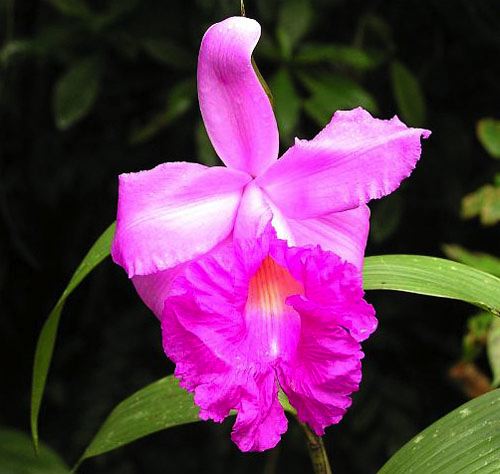
All text, maps & photos © Hilton Pond Center |
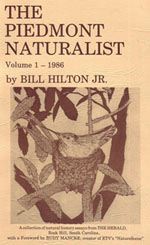 The Piedmont Naturalist, Volume 1 (1986)--long out-of-print--has been re-published by author Bill Hilton Jr. as an e-Book downloadable to read on your iPad, iPhone, Nook, Kindle, or desktop computer. Click on the image at left for information about ordering. All proceeds benefit education, research, and conservation work of Hilton Pond Center for Piedmont Natural History. The Piedmont Naturalist, Volume 1 (1986)--long out-of-print--has been re-published by author Bill Hilton Jr. as an e-Book downloadable to read on your iPad, iPhone, Nook, Kindle, or desktop computer. Click on the image at left for information about ordering. All proceeds benefit education, research, and conservation work of Hilton Pond Center for Piedmont Natural History. |
|
|
"This Week at Hilton Pond" is written and photographed by Bill Hilton Jr., executive director of Hilton Pond Center for Piedmont Natural History
|
|
|
If you Twitter, please refer
"This Week at Hilton Pond" to followers by clicking on this button: Tweet Follow us on Twitter: @hiltonpond |
Comments or questions about this week's installment? Send an E-mail to INFO. (Be sure to scroll down for a tally of birds banded/recaptured during the period, plus other nature notes.) |
|
--SEARCH OUR SITE-- For a free on-line subscription to "This Week at Hilton Pond," send us an |
|
Thanks to the following fine folks for recent gifts in support of Hilton Pond Center for Piedmont Natural History and/or Operation RubyThroat: The Hummingbird Project. Your tax-deductible contributions allow us to continue writing, photographing, and sharing "This Week at Hilton Pond." Please see Support if you'd like to make a gift of your own.
|
|
Make credit card donations
on-line via Network for Good: |
|
|
Use your PayPal account
to make direct donations: |
|
|
If you like shopping on-line please become a member of iGive, through which 800+ on-line stores from Amazon to Lands' End and even iTunes donate a percentage of your purchase price to support Hilton Pond Center .
 Every new member who registers with iGive and makes a purchase earns an ADDITIONAL $5 for the Center. You can even do Web searches through iGive and earn a penny per search--sometimes TWO--for the cause! Please enroll by going to the iGive Web site. It's a painless, important way for YOU to support our on-going work in conservation, education, and research. Add the iGive Toolbar to your browser and register Operation RubyThroat as your preferred charity to make it even easier to help Hilton Pond Center when you shop. Every new member who registers with iGive and makes a purchase earns an ADDITIONAL $5 for the Center. You can even do Web searches through iGive and earn a penny per search--sometimes TWO--for the cause! Please enroll by going to the iGive Web site. It's a painless, important way for YOU to support our on-going work in conservation, education, and research. Add the iGive Toolbar to your browser and register Operation RubyThroat as your preferred charity to make it even easier to help Hilton Pond Center when you shop. |
|
|
SPECIES BANDED THIS WEEK: * = New species for 2011 WEEKLY BANDING TOTAL 4 species 99 individuals 2011 BANDING TOTAL 28 species 1,728 individuals 49 Ruby-throated Hummingbirds 30-YEAR BANDING GRAND TOTAL (since 28 June 1982, during which time 170 species have been observed on or over the property) 125 species (30-yr avg = 67.0) 56,606 individuals (30-yr avg = 1,887) NOTABLE RECAPTURES THIS WEEK (with original banding date, sex, and current age): Ruby-throated Hummingbird (12) 07/17/06--after 6th year female 08/31/06--6th year female 06/09/07--after 5th year female 07/25/09--after 3rd year male 07/25/09--3rd year female 05/27/10--after 2nd year male 07/15/10--after 2nd year female 07/25/10--after 2nd year female 07/25/10-- after 2nd year male 07/31/10--2nd year female 08/26/10--2nd year male 08/31/10--2nd year female Northern Cardinal (1) House Finch (1) |
OTHER NATURE NOTES: --It has been beastly hot the last half of July 2011 at the Center, with (dis)comfort indices up near 110 degrees on some afternoons. Running mist nets under those conditions isn't healthy for the birds OR the bander, so we've resigned our research activities to operating a couple of sunflower seed traps a variety of hummer traps baited with sugar water. The result is a species-poor banding total for the period that includes lots of hummers and House Finches but not much else. |


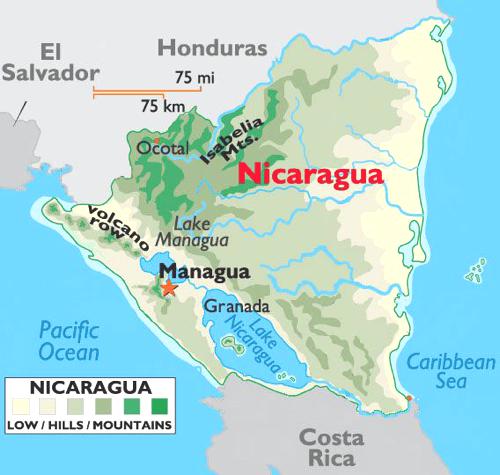
 Thus, we're pleased to announce Operation RubyThroat: The Hummingbird Project is for the first time taking a group of hummingbird enthusiasts next February to Montibelli Forest Reserve near Nicaragua's capital city of Managua. No one has EVER systematically banded and studied ruby-throats down in Nicaragua, so we're recruiting now among birders, hummingbird fanciers, teachers, senior citizens, and other nature enthusiasts to join us in making important discoveries as we "Follow the Hummingbirds North" in spring migration. Nicaragua trip dates are 18-26 February 2012.
Thus, we're pleased to announce Operation RubyThroat: The Hummingbird Project is for the first time taking a group of hummingbird enthusiasts next February to Montibelli Forest Reserve near Nicaragua's capital city of Managua. No one has EVER systematically banded and studied ruby-throats down in Nicaragua, so we're recruiting now among birders, hummingbird fanciers, teachers, senior citizens, and other nature enthusiasts to join us in making important discoveries as we "Follow the Hummingbirds North" in spring migration. Nicaragua trip dates are 18-26 February 2012.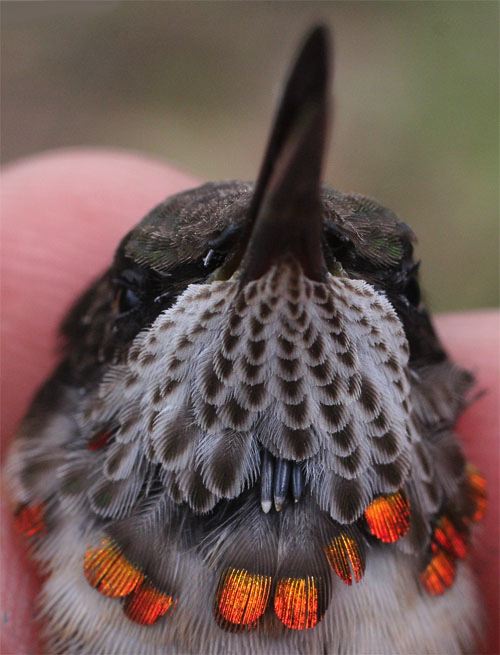
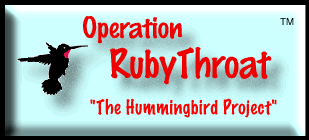 During our 2012 expedition to southwestern Nicaragua, Center director Bill Hilton Jr. will teach participants how hummingbirds are observed, captured, banded, and released. As "citizen scientists," participants will play integral roles in conducting field work by assisting and making field observations, will visit diverse habitats, and will learn about fascinating aspects of Nicaraguan natural history and culture--from volcanoes to cloud forest ecosystems, from orchids to tropical butterflies. No experience is necessary!
During our 2012 expedition to southwestern Nicaragua, Center director Bill Hilton Jr. will teach participants how hummingbirds are observed, captured, banded, and released. As "citizen scientists," participants will play integral roles in conducting field work by assisting and making field observations, will visit diverse habitats, and will learn about fascinating aspects of Nicaraguan natural history and culture--from volcanoes to cloud forest ecosystems, from orchids to tropical butterflies. No experience is necessary!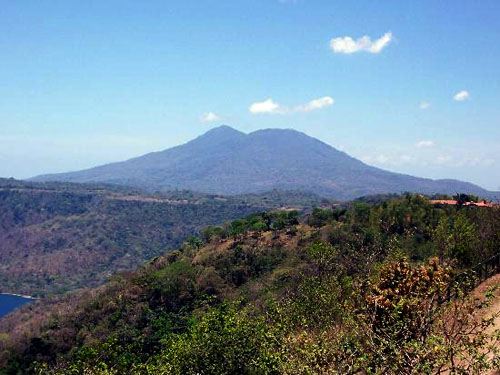
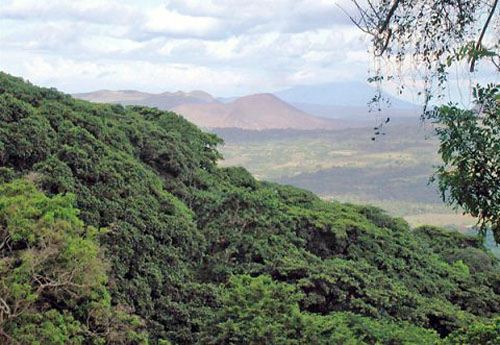
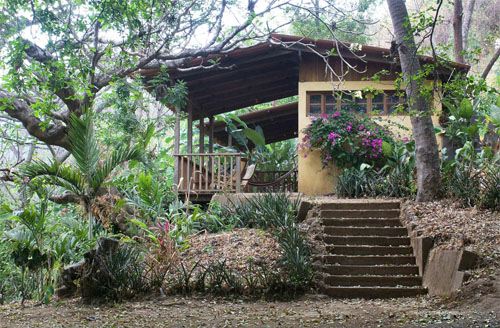
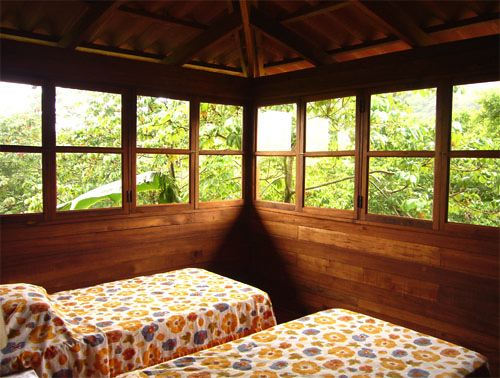
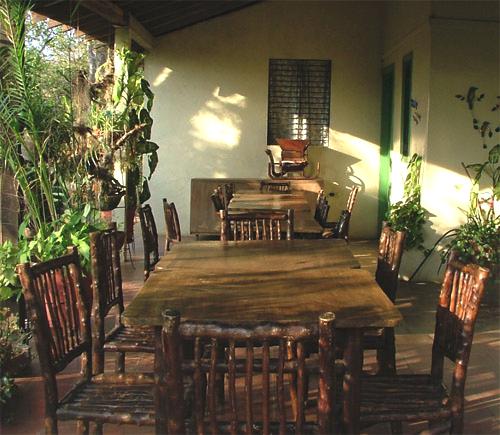
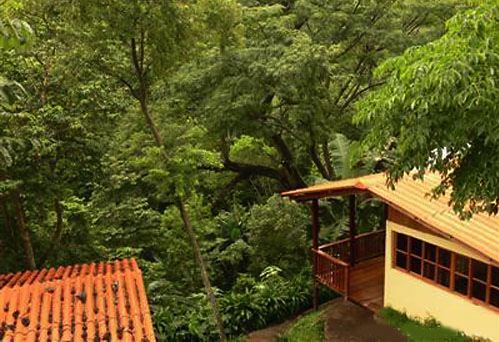
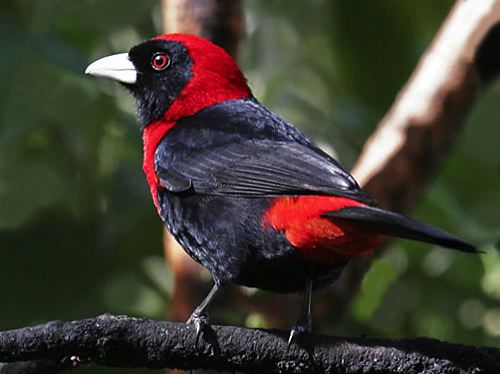
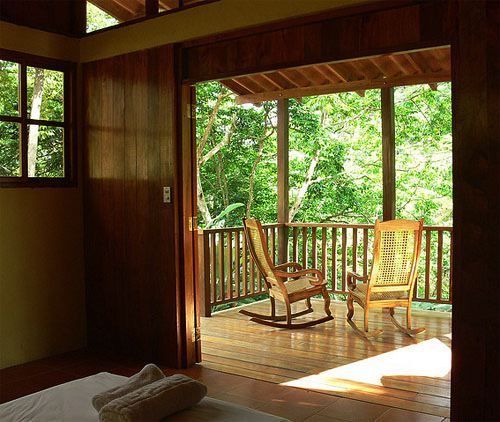
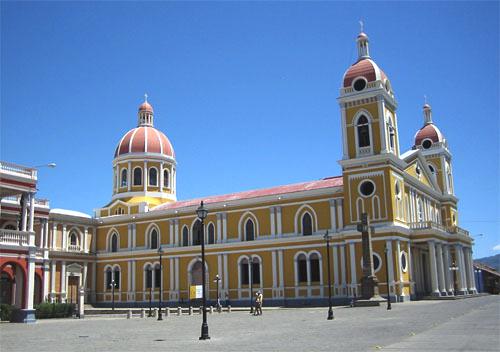
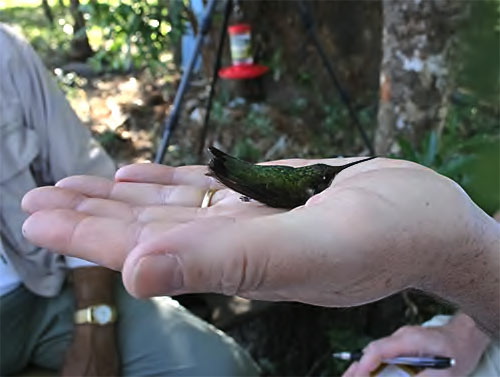
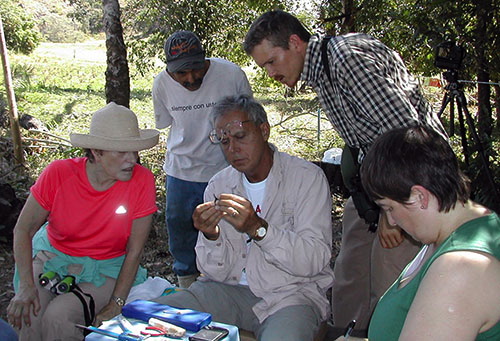

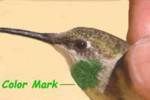 Please report your
Please report your